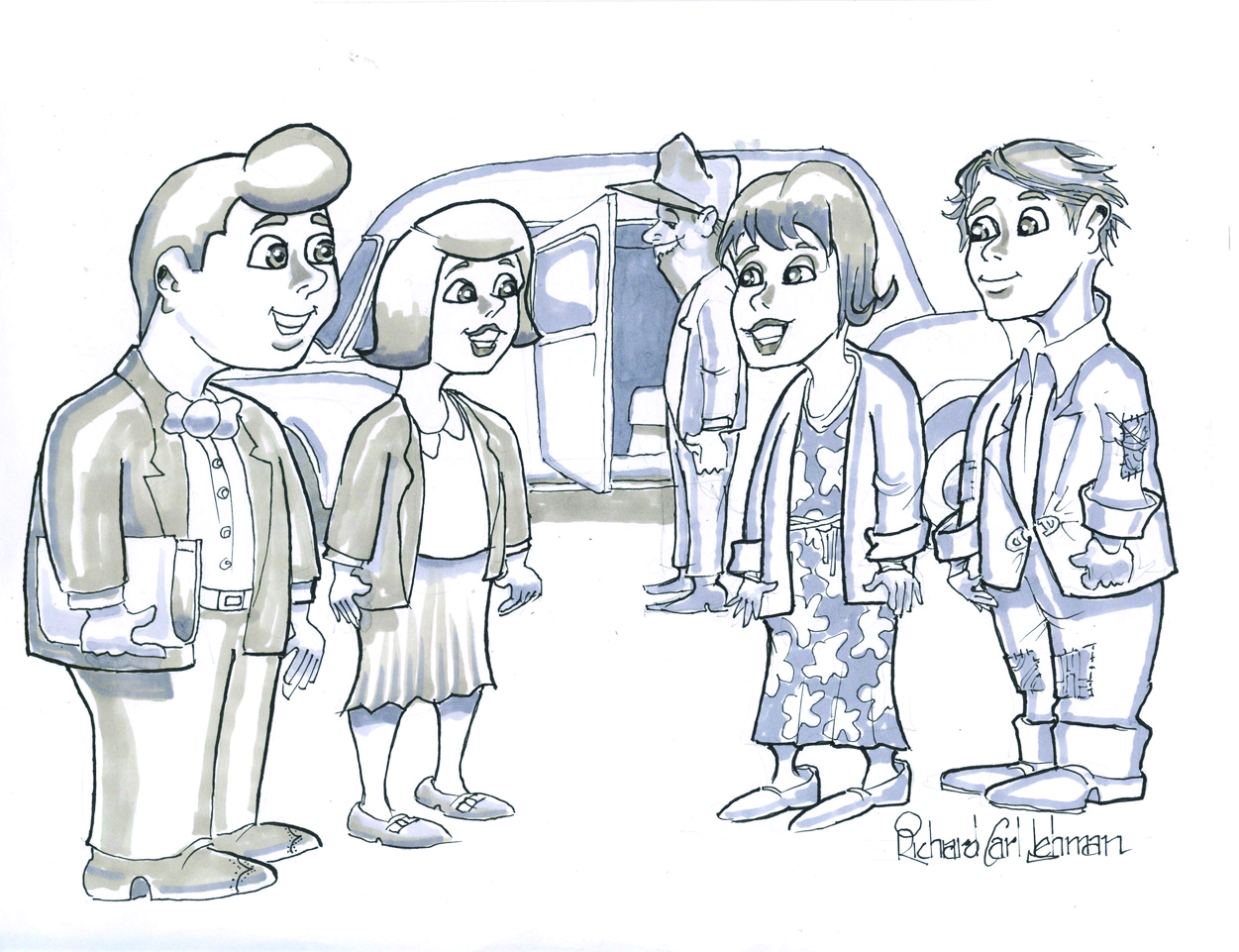The elementary school I attended in Riverton Heights near SeaTac differed significantly from J. J. McGilvra’s in Madison Park regarding the student body, income levels, and attire. It was expected to see kids wearing bib overalls and optional shoes, which worked well for sliding down hills of tall grass on waxed boxes from the grocery store. Our toys were swords and pistols that my dad made for us with his coping saw.
Carl Max Lehman, also known as Dad, worked for the Seattle Star Daily newspaper and supplied the numerous newspaper stands throughout the city. The barkers who shouted the headlines could be heard for blocks. One of them, Turko, had a distinct voice and occupied a prime spot in the city center on 3rd and Union. His demeanor and personality helped him make sales, as he remembered everyone, and they remembered him.
I rode with Dad some days. Downtown was alive with activity, and people asked how we were doing. It was the active heart of Seattle that seemed to lift everyone’s spirits. We would stop at Hooverville and walk around the many small shacks. Dad always brought food for people in need. I remember how thin and hungry the kids were, and I have never forgotten that sight.
Our two-bedroom house was brand new and dry, a welcome change from the soggy garage we had lived in before. One day, when I came home from school, my parents seemed sad. World War 2 was beginning, and our lives were about to change. We had to say goodbye to our dog Lucky, who we gave to a neighbor, and our friends as we prepared to move south. My dad trained as a pilot there, and I attended overcrowded schools in the New Mexico area. The teachers had to handle several grades simultaneously, and English was barely spoken. As a result, there were many disagreements among all of us.
I attended other similar schools in the Southwest — the last one was in the Mohave Desert, where most students were military dependents and “Oakies,” who were the poorest of the poor. All of them were good kids who had lost their homes due to the war. The “Dustbowl” refugees watched the garbage can for anything discarded to eat, like the crust of bread from a sandwich. One kid said to me, “I’ll give you this whole turnip for one half of your sandwich.” That sandwich was gone in a second.
Life got tough after we lost Dad. Uncle Hank took leave from the military to drive us back to Seattle. We joined an aunt and another uncle and moved into my grandparents’ garage behind the house, which still stands today. It was cold sleeping on donated army cots, but it was warm in the house where we sat for breakfast and looked out at the lake, unencumbered by any housing.
 Courtesy
CourtesyHouseboats that were mostly one story had been pulled up from the lake onto the east side of the alley between 42nd and 43rd. I joined my schoolmates to walk down muddy alleys to McGilvra school, which was the highlight of the day. Some kids here were not wearing hand-me-down clothes; some wore brand-new ones as if they were in a Mickey Rooney movie. Our mouths dropped as we watched long, shiny chauffeur-driven cars drop children off. Those kids may have been rich, but once inside, we were all the same and got along, dealing with the hands we were dealt.
There was no shortage of teachers in the early forties. Granted, many were elderly, childless cat women, probably 45 years old. Mrs. Noon was, in a word, amazing! People still remember her. Without her, we could not have survived the war, the shortages, the air raids, and the blackouts. She taught in the homeroom classroom in the mornings. Mrs. Meham focused on math, Mrs. North concentrated on English and spelling, and Mr. Tucker on geography and sports. To end the day, it was back to homeroom and Mrs. Noon. She always spoke kindly, suggesting that even war and other hardships must be dealt with, along with the good and bad that life grants us. Her perception of the future was uncanny.
The media of the 1940s left a lot to be desired, although current-day media is undoubtedly messing with our heads. The radio was always turned down during the news hour, and adult conversations were muted, so we never knew what was happening. However, on family movie night, the news would air between features, cartoons, and upcoming movies, exposing us then. During summer vacation, we kids collected bottles discarded by servicemen visiting Madison Beach and heard graphic details about the war, but we never dared to repeat them.
Making friends at J. J. McGilvra was not easy in the beginning. Finally, joining forces with six friends, we became a pack and supported each other. One of these friends and I were involved in a minor altercation. Mr. Chichester, the principal, and his friendly paddle joined us in the boiler room. Why does the principal always look and sound like a principal: tall, stoic, forced base voice? With all his education and fortitude, why did it take so long to remove his coat and roll up his sleeves?
Hands below the knees and straight legs, and WHAM! In this sharing of pain, we shook hands and smiled. We felt like we were growing up. Another incident with us skipping school resulted in this same punishment, but we agreed this would be the last time.
Our teachers always had time to address our questions and share what was happening worldwide. J. J. McGilvra Elementary has been a mainstay for as long as I can remember. Kids from all walks of life have been proud to be students there. It has been the cement that bonds the young and adults together. Where would we be without it?